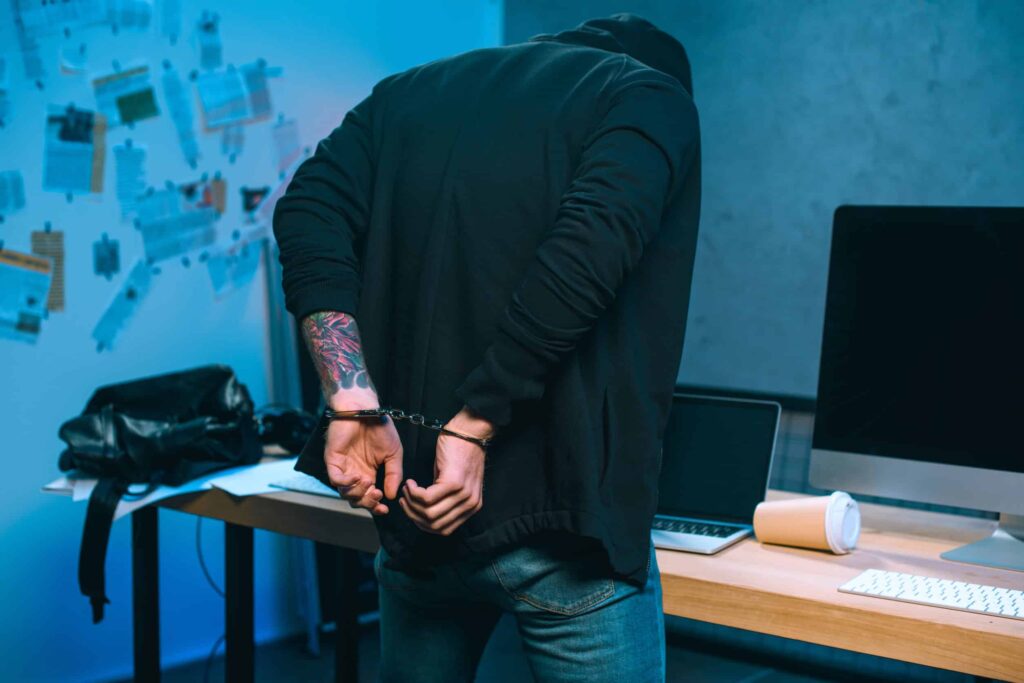Defending Against Police Informant Testimony
April 18, 2025

If you wanted to fly under the radar and commit computer crimes, you’d think you wouldn’t use the crazy Wingdings font. However, that’s exactly what a Denver Sheriff Department Deputy did — and now he’s facing felony charges.
Back in December 2017, the deputy allegedly forged orders in order to get paid time off from work. The forgery went on for about a year, until a staff member noticed the use of the Wingdings font and other irregularities in the order. An investigation ensued, and law enforcement officials discovered that the deputy had cost Denver over $20,000 in pay and overtime for himself and others.
What happens now? The deputy has to some serious explaining to do. He has been charged with felony counts of theft, computer crime, cybercrime forgery of government documents, criminal impersonation to gain benefit, and attempting to influence a public servant.
The trial isn’t set yet, but it’s possible that the deputy could face years behind bars. Which is a long way of saying that computer crimes are taken very seriously in Colorado.
In this post, we’re going to detail just how serious charges can be by going into the nuts and bolts of the law.
“Computer crime” sounds pretty vague, and it does cover a lot of ground. That being said, Colorado law is pretty specific about what constitutes an actual “computer crime” here:
As defined by the law, a “computer” refers to a physical computer, computer system, computer network, or any part of a computer network.
Colorado also considers it a crime to access a computer, computer system, or computer network:

According to the letter of the law, submitting false orders online to get a few days off of work is the same crime as hacking through a line to buy concert tickets before everyone else. So, how are penalties for these charges determined?
A computer crime may be a class 1 petty offense in Colorado or a class 2 felony. The charge (and penalties) depend on the value of what was lost, stolen, or damaged by the computer crime.
If the property was valued at:
In the case above, the deputy allegedly cost the state over $20,000. Because of this, it’s likely he will face the penalties for a class 4 felony. Penalties for this type of crime include up to six years in prison and fines of up to $500,000.
Remember that these penalties are just for one charge — the deputy faces at least four other charges that come with serious penalties on their own. Additionally, since of the charges are felonies, the deputy also faces the loss of a handful of rights.
You might have noticed that one of the crimes that falls under the category of “computer crime” is simply accessing a computer without authorization. This means that someone doesn’t actually have to cause any damage or steal anything to commit a computer crime in Colorado.
So, how is that penalized?
Colorado has specific charges for crimes that only include unlawful access or use of a computer. For example, simply accessing a computer without authorization or exceeding authorized use to a computer is a class 2 misdemeanor. Penalties include up to one year in jail and up to $1,000 in fines.
Another example; if you cut the line to buy tickets to an event, you may face class 1 misdemeanor charges. Penalties include up to 18 months behind bars and up to $5,000 in fines.

About the Author:
Denver-based criminal defense and DUI attorney Jacob E. Martinez is a knowledgeable and experienced litigator with a record of success providing innovative solutions to clients facing criminal charges of any severity. Mr. Martinez has been designated a Top 100 Trial Lawyer by the National Trial Lawyers and has been awarded both the Avvo Client’s Choice Award and Avvo Top Attorney designation, evidencing his reputation for his exemplary criminal and DUI defense work and high moral standards.